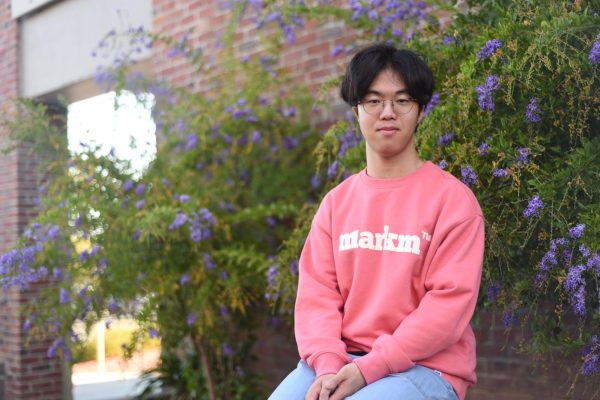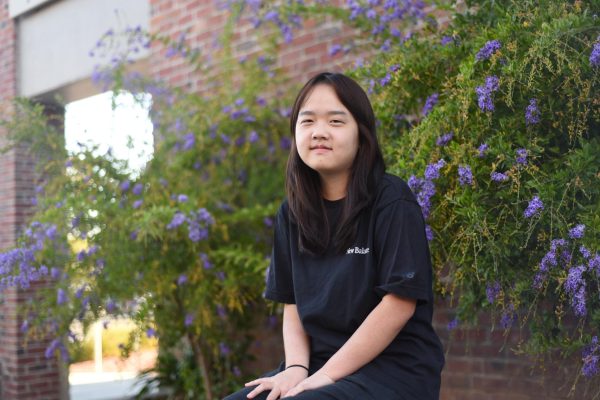GL: Hi! It’s Giljoon,
KY: And I’m Kate. And as the end of the school year approaches, some things are certain for us Monta Vista students: finals, breakdowns and your Spotify Wrapped, which has become kind of an annual tradition.
GL: I’ve seen so many of them on Instagram, everyone’s posting about theirs, and frankly, it’s hard, if not impossible, to escape. Personally, I’m an Apple Music user, so I do feel left out, but I used to be a Spotify user myself back in 2022, and I’ve noticed the kind of shift since my time I was a Spotify user and the current day.
KY: It’s become somewhat of a trend for companies to introduce AI elements into their products to maintain some resemblance of human connection while maintaining effort on a budget. For example, X, formerly known as Twitter, has their Grok chat bot. Google has now implemented AI search results, and Apple in their latest iOS 18.2 update has AI summaries for text messages.
GL: Furthermore, Adobe programs such as Lightroom and Photoshop have AI generation features built into their softwares. Zoom is rebranding as an AI first company, but no one’s quite sure what that means. And of course, Spotify.
KY: Introducing the AI podcast, and here’s mine from this year.
Spotify AI podcast hosts: Kate, get ready. We’re about to unwrap your 2024 Spotify Wrapped. We are hosts visiting from Google’s notebook, LM, and we’re super excited to see what your year in music looked like. First things first. Kate, 55,874 minutes on Spotify. That’s incredible. Yeah, it’s like, you know, you were really soaking up the music. You’re the top 3% of listeners worldwide.
KY: That was something.
GL: Strange inflections aside—
Spotify AI podcast hosts: Yeah.
GL: That was shockingly human-like.
KY: However, the substance is devoid of any emotion or quirkiness that was seen in previous Wrappeds. It follows such a predictable script that has so many guardrails to prevent the AI from saying anything weird, that ultimately kind of defeats the very supposed purpose of AI — to make every iteration of the podcast unique and unpredictable.
GL: AI products replace actual quirky parts of last year’s and other previous years such as special cities that match your music listening habits or quirky musical genre titles — all features that added to the exclusivity of Wrapped and encouraged user excitement for their releases.
KY: Spotify hooked its users, and more importantly, it brought in new ones with their original Wrappeds. Ttheir shareability and numerous trends on social media helped establish them as an annual tradition, something that I’m sure we now all take for granted. The excitement we get now from Wrapped is a vestige of this past version of it.
GL: Spotify, no matter how much they try to hide it with their supposed quirkiness, is a company first and foremost, and they joined the club of companies prioritizing efficiency over all else. This shift to AI with this year’s podcast is a reflection of that. They know users, especially in this social media age, get bored easily and hence the need for innovation. Yet, they also know that users will continue to have some enthusiasm for Wrappeds because they are conditioned to have it. It only feels natural now that it’s an established general tradition.
KY: Therefore you get the AI podcast, a supposed innovation that is, in reality, lazy and simply following the most popular trend of the year without actually taking the time or effort to think, “What will users want?” The appeal of its past quirky aspects established a dedicated user base that wanted to participate in Wrapped because of how it offered an escape from the monotony of other soulless, AI-based platforms.
GL: We don’t like AI because it takes away from the human aspect of social media, genuine connections and actual learning, despite the fact that some social media elements can now feel soulless. Spotify Wrappeds were a rare solace from this.
KY: There’s less reliance on critical thinking and more reliance on artificial programs that can offer users instant gratification. The more we continue to pay attention to Wrappeds we’re just feeding into their capitalist product models, losing our own autonomy in the process.
GL: We can’t really escape Spotify, and by extension, Wrapped. It’s way too ingrained into our music consumption culture at this point. But we can try to be less reliant on AI and Spotify. We can start to incorporate alternative programs into our traditions. There’s been a rise of independent web developers creating non-Spotify-affiliated projects that don’t rely on AI. Take, for example, Instafest, developed by University of Southern California Student Anshay Saboo. It generates a personalized festival lineup, with the font size of artists corresponding to the number of times you’ve listened to them. We can also try to have more conversations about listening habits to other humans and not rely on AI to summarize everything for us. Ultimately, isn’t that the whole point of Wrapped? To start conversations?
GL: This was Giljoon Lee and—
KY: Kate Yang—
GL: from El Estoque.
KY: Thank you so much for listening!
Background music: “Dreams” by HoliznaCC0 on Free Music Archive | Used with permission












